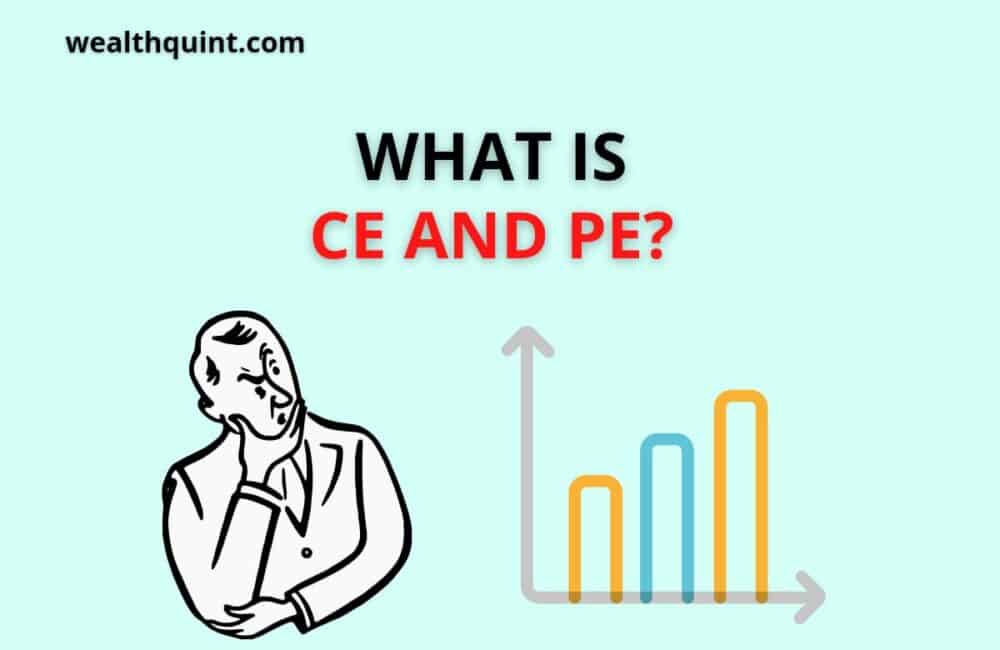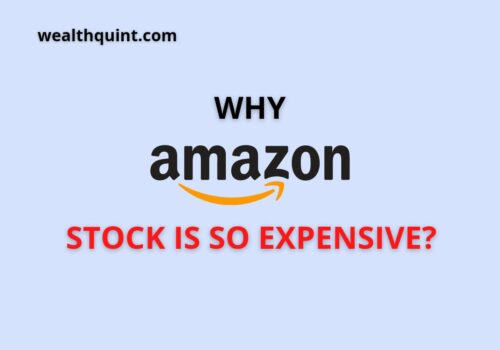Call option (CE) and Put Option (PE) are two Options in the Share Market. CE and PE allow option holders to have conditional derivative contracts that allow option holders to purchase or sell a security at a predetermined price.
There are various terms of the stock market that we find hard to understand. Many times it’s hard to comprehend the terms used in finance. Today let’s figure out the meaning of CE and PE in the share market. Before starting, we need to understand the role of CE and PE.
To begin with, Option holders can buy or sell a security at a predetermined price using contingent financial derivatives called options. In return for such access, option purchasers charge a small amount referred to as a premium to such sellers.
If market prices are unfavorable to option holders, they will choose to let their options lapse without exercising them. It will lead to minimizing their losses to the premium. On the contrary, the option seller (or writer), as we call them, will take on more risk as compared to the purchasers thus, they require this premium. These options are broken down into two most commonly known types- Call Option (CE) and (PE).
The following are the key characteristics of an option:
- Striking Price: The price at which the fundamental shares can be purchased.
- Premium: The cost of an option for either the buyer or the seller.
- Expiration: When the option has reached its expiration date and has been settled
Understanding CE And PE
Call Option (CE)
CE is an abbreviation for Call Option, however, its full name is Call European. They’re investment contracts that provide the option investor the right, but not the obligation, to buy a stock, bond, product, or other asset or instrument at a specific price and within a specified time frame.
A share, a bond, or a commodity are the most fundamental assets. The call buyer benefits from the call every time the fundamental value of the assets rises.
The call is out of the money as well as meaningless if the stock price is less than the strike price at expiration. Any premium paid for the option is retained by the call seller.
Also Read: 20 Must Watch Stock Market Movies Every Investor
Why Would You Buy A Call Option?
The most significant benefit of purchasing a call option is that it multiplies price benefits in a stock. You can profit from a stock’s gains over the strike price for a relatively low upfront fee until the option expires. When you buy a call, you expect the stock to climb before the expiration date.
Advantages Of CE
When one purchases a call option they have an alternative to acquiring the fundamental asset before the expiration date. As a result, once the seller has been assigned, he or she must deliver the underlying item at the strike price. This can benefit either the purchaser or the seller, or both at the same time, depending on each investor’s position.
Put Option (PE)
PE is an abbreviation for Put Option. However, its real name is Put European. Contrary to the call option. When you purchase a put option, you get the right to sell the assets at a strike price during the time or even before the contract expires.
Although the purchaser has an option to exercise or disregard the put option. The put option seller is legally compelled to buy the put.
The strike rate is the predetermined price at which a put option seller will trade. Put options take place using stocks, currencies, bonds, commodities, and futures as fundamental assets. The polar opposite of a put option is a call option.
In any market, a bidder can never exist without a seller. Similarly, without put options in the options section, you can’t obtain call options.
Also Read: What is Nifty Bees & How to trade Nifty Bees on Zerodha?
Why Would You Buy A Put Option?
Traders buy a put option to benefit more from a stock’s decline. For an upfront payment and until the contract period is over. A trader can profit from stock prices below the strike price.
When you buy a put, you’re wagering that the stock will fall in value before the option expires. It may be looked up to as a kind of risk management in the event of a stock decline.
Advantages Of PE
A put option buyer has the option to sell the underlying asset at the strike price if the strike price. If this option is selected, the seller must acquire the shares from the holder. Depending on the borrower’s objectives, this could be advantageous to each one of the two parties.
Many individuals believe that options are unsafe, but they may be if utilized inappropriately. However, investors may employ options in a way that reduces their risk while still allowing them to profit from a stock’s growth or decline.
Recommended:



